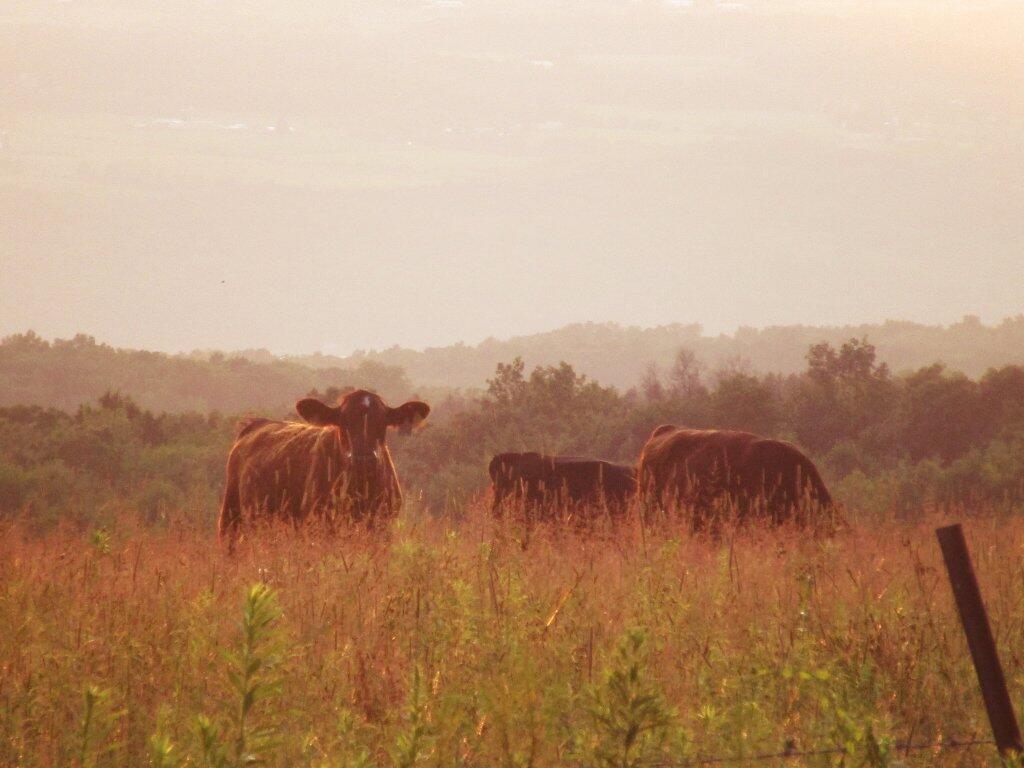Green Fair and Climate Change.
Yesterday at the Green Energy Fair 🔌 I listened to Woodstock Farm Sanctuary’s lecture on animal agriculture 🐮 and climate change 🌎 …
Honestly, I was quite curious to hear what they had to say, even though I knew it hardly would be positive and probably downright misleading. And it did not disappoint me, reflecting all the typical stereotypes of people who know nothing about agriculture or animals, have spent little time in the country and have a pretty poor grasp of science, facts or reality. Here’s my thoughts on some of the things said ….
Farms sometimes are pungent but that doesn’t mean their bad for the earth
Farms raise crops and livestock. Crops like silage are constantly being attacked by bacteria, as is animal manure. It rots, it produces hydrogen sulfide which are noses are very sensitive to. Just because it stinks, doesn’t mean it pollutes. Most farmers are highly educated on soil science, animal health and the environment. They want their often multi-generational farm business to survive, and the way to do that is to be highly contingent of the natural world around them. There is a lot that goes into building healthy soils that yield quality, profitable crops. Manure and fertilizer that washes off fields not only impacts streams, it also is a loss of nutrients from farms, which is a loss of potential crop yield. Nutrient management plans, based on science and created by people who have had years of training in managing natural resources are the basis of most mid-size and large farms. 💩
Burping cows and anaerobic biodegration in silage and manure pits produces methane
So that’s not shocking to anyone. Even if you take the worse-case scenarios, climate emissions from farming, especially in America were forests are not actively being taken down for new farm fields, are if anything declining rather then increasing as farms upgrade to more modern technology and techniques — and they’re a small part of the nation’s total carbon footprint. Farms cover millions of acres, but their carbon footprint is tiny compared to the big cities with the millions of automobiles. Deforestation in the rain-forest, by often desperate people in the third world is a totally different but related issue, but eating meat and partaking in animal agriculture in America isn’t necessarily causing it. 👣
Livestock are not treated badly on farms
Most farmers nowadays have a college degrees in agriculture and related sciences. They subscribe to and read the latest agriculture news and what products and practices are being promoted today. They are in frequent consultation with their veterinarians, and work hard to treat their animals humanely and with respect. Livestock are expensive, they require a lot of feed and care to raise to market weight or to produce milk and wool. High livestock morality, from stressed or sick animals means low profitability and the eventual failure of a farm business. 🐷
Farming keeps the land green, absorbing carbon
Farms by definition raise crops, and lots of them. Crops are plants, they absorb carbon dioxide from the air, turning them into carbohydrates that are eaten by humans or livestock. Even dairies, hog farms, chicken farms, and other livestock businesses are big crop growers, they actually produce and consume the bulk of crops grown on farm land today. All those crop fields are keeping the land open for wildlife, free of development, home for a wide variety of wildlife species. Some of the biggest “crops” of deer and turkey are found in agriculture areas that have quality soil, built up from years of careful management by farm families who not only feed themselves and the nation, but also wildlife.🌽
